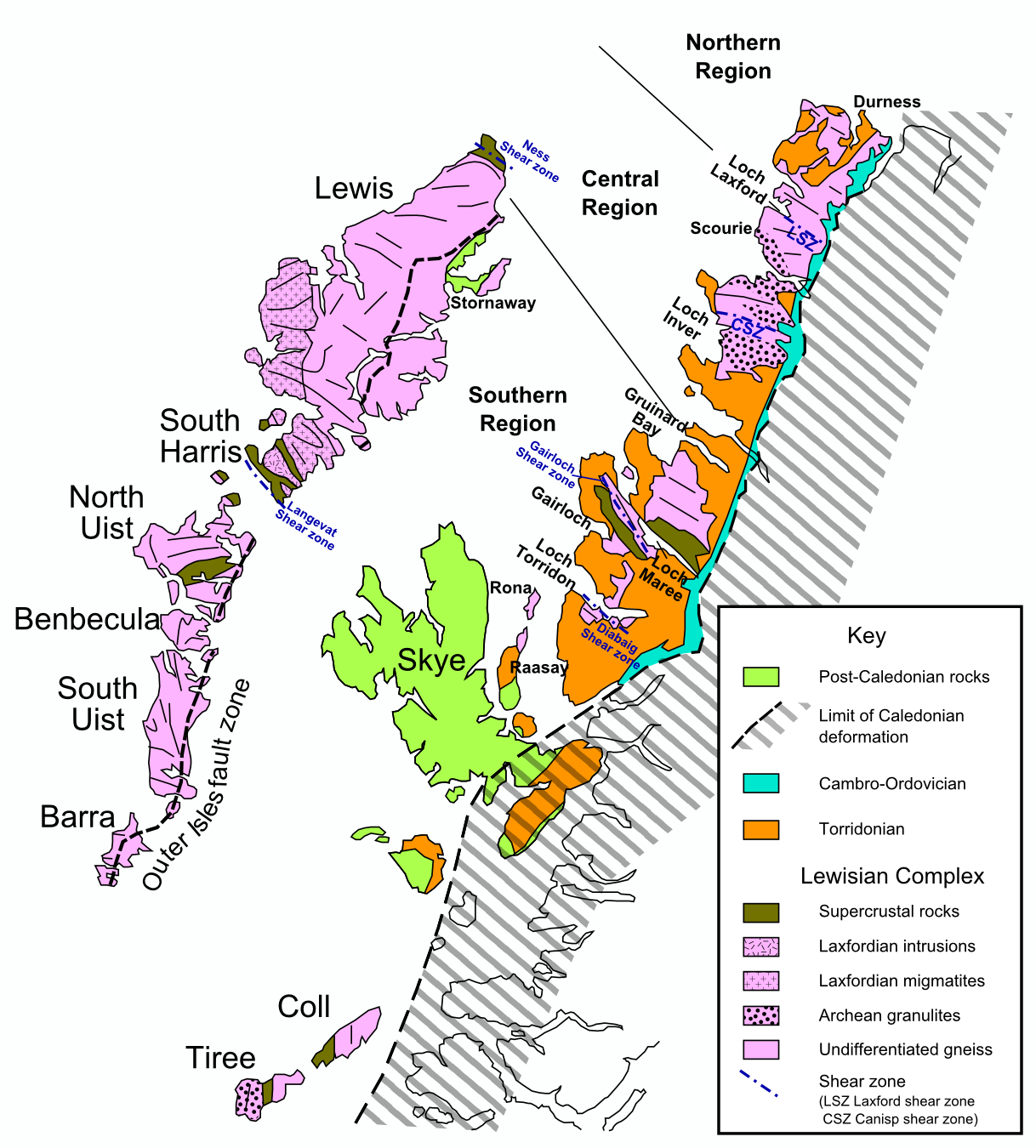
The oldest rock in Britain is Lewisian Gneiss. We visited some today.
This rock is the oldest in Britain and is among the oldest on earth. The Lewisian Gneiss, our host rock, is about 3 billion years old. Gneiss is a metamorphic rock, formed after layers of shale or sandstone were compressed and heated within the earth until it changed structure to become gneiss. The world's oldest rock is related to this--a gneiss found in the Northwest Territories in Canada; it is about 3.8 billion years old. (No surprise--there is disagreement about its age.)
Lewisian Gneiss is named for the Isle of Lewis where I am staying now. The Isle of Lewis and Harris (two names, one island) as well as the Uists and nearby islands of the Outer Hebrides are composed mainly of this gneiss which is named after them. The eastern side of the islands are a major fault--east of the fault, other kinds of rock are more plentiful. Pink in the map is our host rock.

Besides being old, this rock is beautiful. The top image in this post shows blocks of cut Lewisian gneiss used as a boundary marker at an archeological site. The layers and edges show well on recently cut rock like the ones pictured and in road cuts.
Below, small islands of Lewisian Gneiss. They emerge from the Atlantic Ocean as part of the uplift of the North Atlantic plate. The small island in the back shows the jagged layers of the gneiss pointing more or less east.
This mountain , shown below, of Lewisian gneiss (about 2000 ft.) is the southern part of the Isle of Harris seen from the ferry. It is bare rock at the top and peat and heather middle--thus the pink tones. A little thin grassland and a village on the lower slopes. The area was scoured by glaciers, exposing the gneiss. Climate has allowed the formation of peat but very thin soil.

One of the joys of going to visit Lewisian Gneiss is that one must visit by ferry. I love ferries and love old rocks. What could be better. Well we had grand archeology and birds today too.



No comments:
Post a Comment